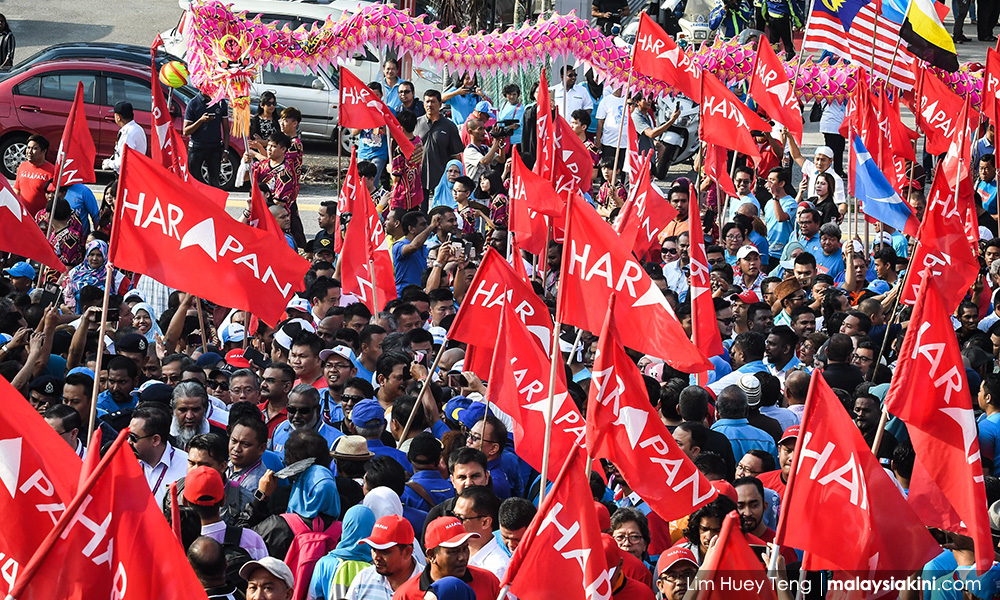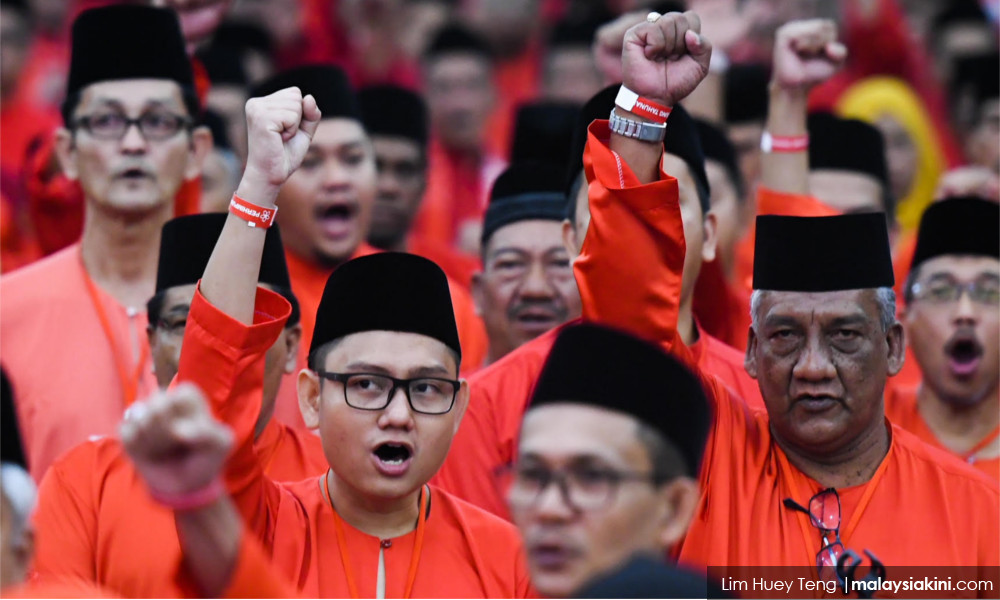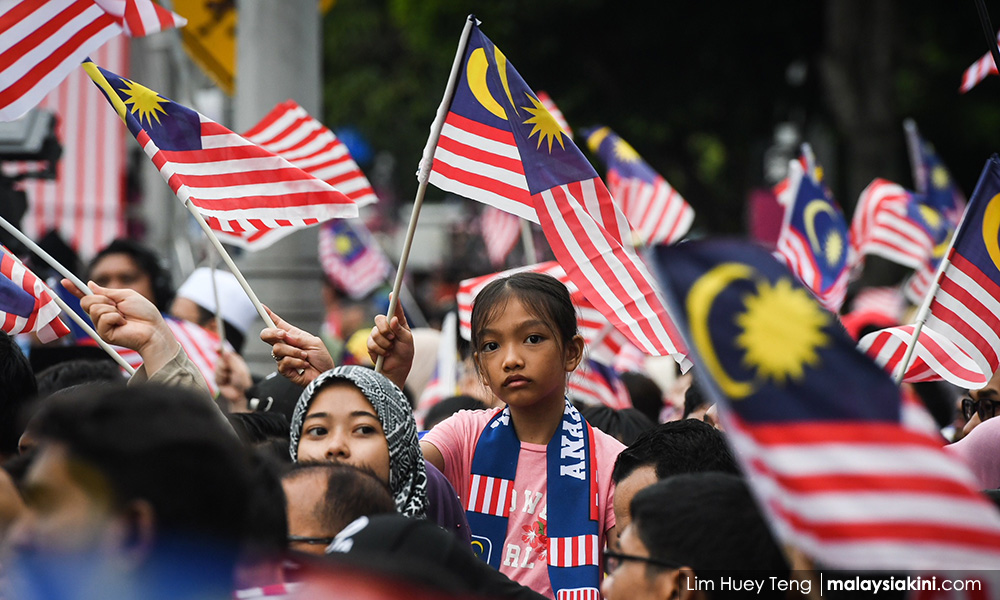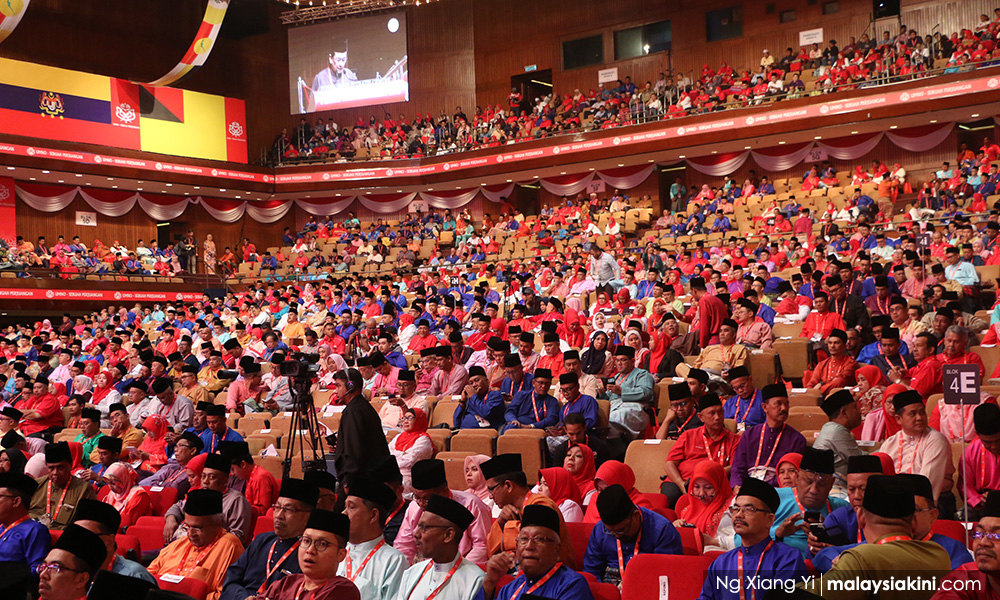
As we read about the “Operasi Lalang 2.0” or “Weed-Out-the-Corrupt Campaign of the New Regime” at play and in full throttle as in the McCarthyism of our cultural sensibility, as we see more leaders hauled up to be tried for grand theft, money-laundering and for bankrupting and corroding society, we ask: what next in this metamorphosis and game of political karma we are to see?
All these against the backdrop of talks of the third car project, crooked bridge, political-party border-crossings, renewed demands to strengthen Malay rights, postponed promises, and to rebrand fundamentalist Islamic identity in preparation for the challenges posed by the super liberals and the LGBT. What will the new coalition transform into in a country whose political parties are addicted to a race-based ideology?
Then, there is the crucial issue of a newer Umno and newer BN emerging, with talk of 40 Umno MPs crossing over to Bersatu. There was also the latest statement by a minister that Ketuanan Melayu will end soon, replaced by the idea of making every Malaysian prosperous. Then the idea was immediately repudiated by another minister, a former deputy prime minister in the regime of the Najib Abdul Razak.

I have a sense that the latest developments in the continuing chaos produced in PKR, the seemingly silent DAP in addressing the issues the party once opposed, the talk of a new Indian party, and, of course, the strengthening and enlarging of Bersatu – all this points not only to the emergence of a BN reloaded, a 2.0 version of Malaysia’s race-based politics.
I might be wrong. We shall observe the developments. We may even see more “Kajang Moves”, cross-overs, and more intense struggle for power within and amongst the coalition parties.
The voters in GE14 voted for a new Malaysia. Equal opportunity in education, lessening of race-based politics, abolishing of tolls and whatever that was promised by the then opposition, the “Coalition of Hope” of the Mahathir-led campaign against kleptocracy and the materially, morally and ideologically corrupt regime of Najib.
At least that was the promise which then turned into a primarily false one, leaving the voters feeling lied to and short-changed.
The hope for the non-Malays, non-bumiputera to stop being treated as second-class citizens in the land called Malaysia they and their parents and grandparents, too, toiled for will not be realised after all. The rhetoric of today’s new Malaysia is the same old rhetoric of keeping the status quo alive.

This means that there will be no push for the idea of “Malaysian Malaysia” and equal opportunities in education, especially for all non-Malays. Hope buried. When the new coalition has transformed into a newer version of the old politics, the non-Malays can expect another five decades of racialised politics affecting the future of their children.
This is not a grim view of what I see developing. I am sure some of my esteemed readers, too, share a similar perspective of a hope for the triumph of multiculturalism dashing. Unless the Harapan government can, in unison, with consistency and as a policy, state its commitment to make Malaysia a place in which no Malaysian will be left behind.
Where are we heading?
Back to Umno and its sudden death. The talk about more Umno MPs leaving for Bersatu is of concern for those who voted for hope and for real change.
But what will replace Umno in this time of a “new Malaysia” in which race and religion continues to be the strongest force for the current regime as well, to continue policies inspired by her own apartheid system of divide and conquer with wealth, power, hegemony, and ideology as the hybrid of authoritarianism, continue to glue the still-cognitively unliberated society?
The question remains: what kind of Malaysian Malaysia do we wish to see? How will a rebranded Umno be an obstacle to this?

The key to dealing with any rot from happening is to educate for change. If the change we wish to see is for a Malaysia for all Malaysians, education, as the only means for a sustainable cognitive, cultural, personal and social progress should be the one taking lead.
When politics continues to travel the trajectory of ethnocentrism and only pays lip-service to multi-culturalism and the restructuring of society through a philosophy of education based on a truly Malaysian reconstructionism, we will fail as a people.
Education needs to step in and correct the political conveyor belt, changing course. As it is now, we are not seeing the Ministry of Education committed to producing such a change to reverse the major aspects of discrimination in the various levels of schooling. The issues of class, caste, race, religion and privilege is not addressed systemically.
Like many, I am concerned with the disjuncture between politics, education, economy, and national unity. There is an unhealthy development in the way party-politics is moving.
Our concerns may turn into fear of yet another wave of chaos as parties and followers and consumers of ideology and real and fake news alike prepare for another general election that will only bring stagnancy, not change.
Where are we heading? What then must we do to drum into the new regime that race-based politics should no longer be allowed to rear its ugly head?
AZLY RAHMAN is an educator, academic, international columnist, and author of seven books available here. He grew up in Johor Bahru and holds a Columbia University doctorate in international education development and Master’s degrees in six areas: education, international affairs, peace studies communication, fiction and non-fiction writing. Twitter @azlyrahman. More writings here. - Mkini
No comments:
Post a Comment
Note: Only a member of this blog may post a comment.